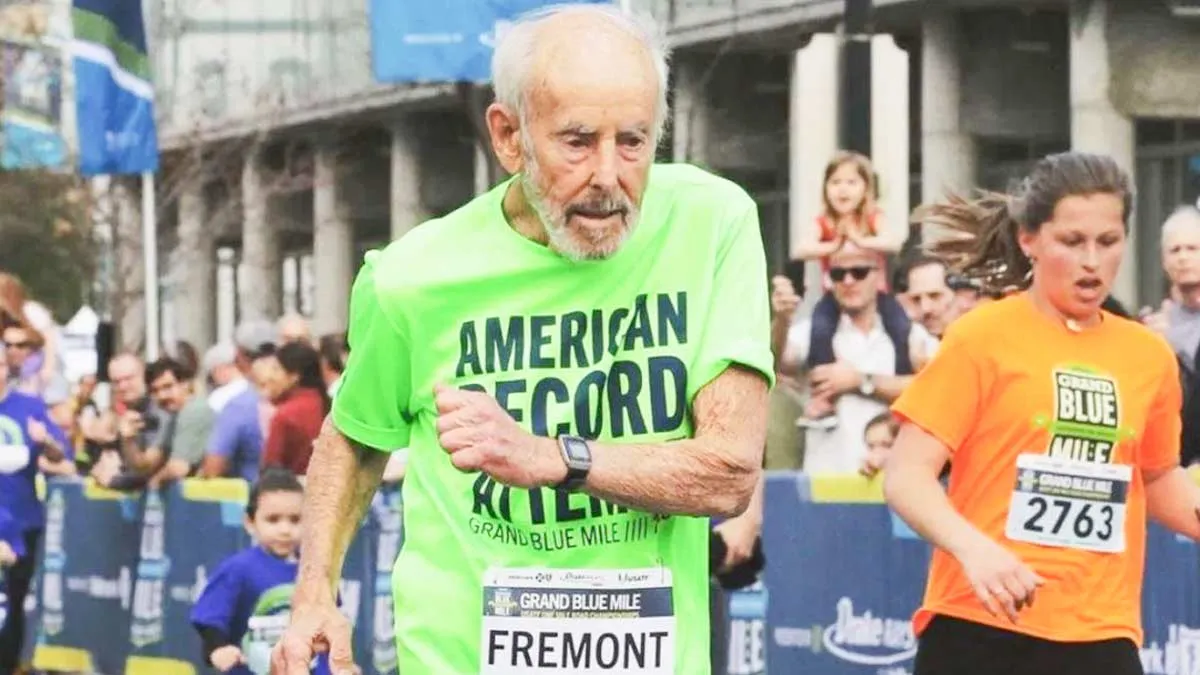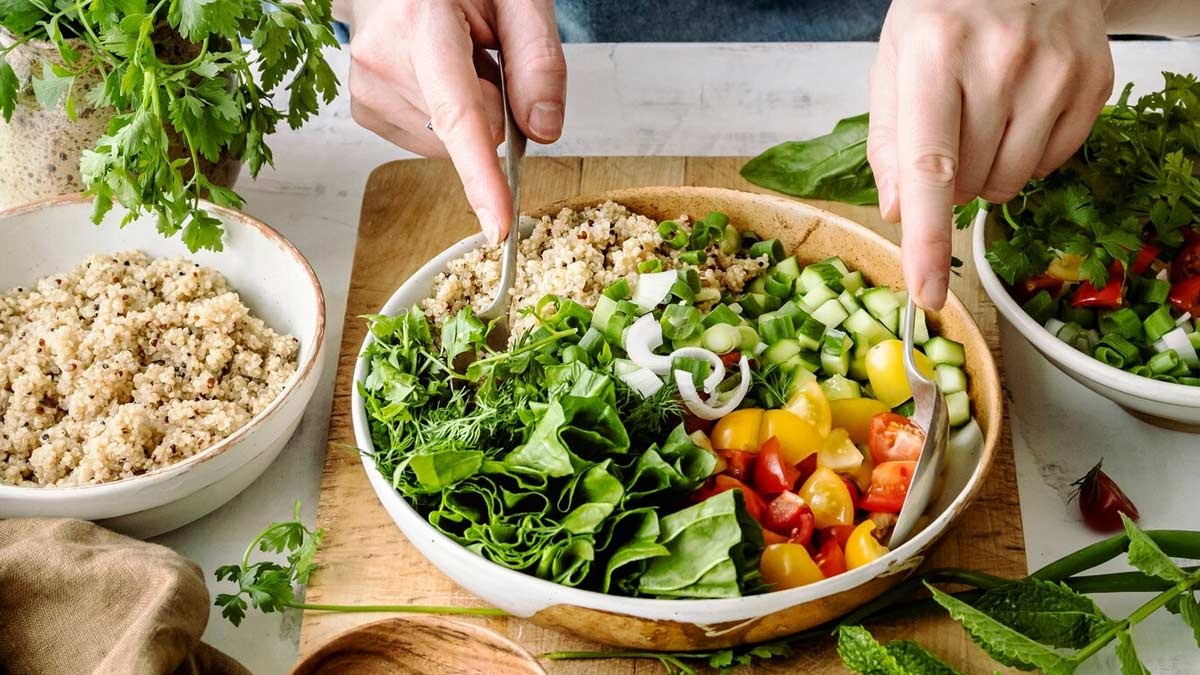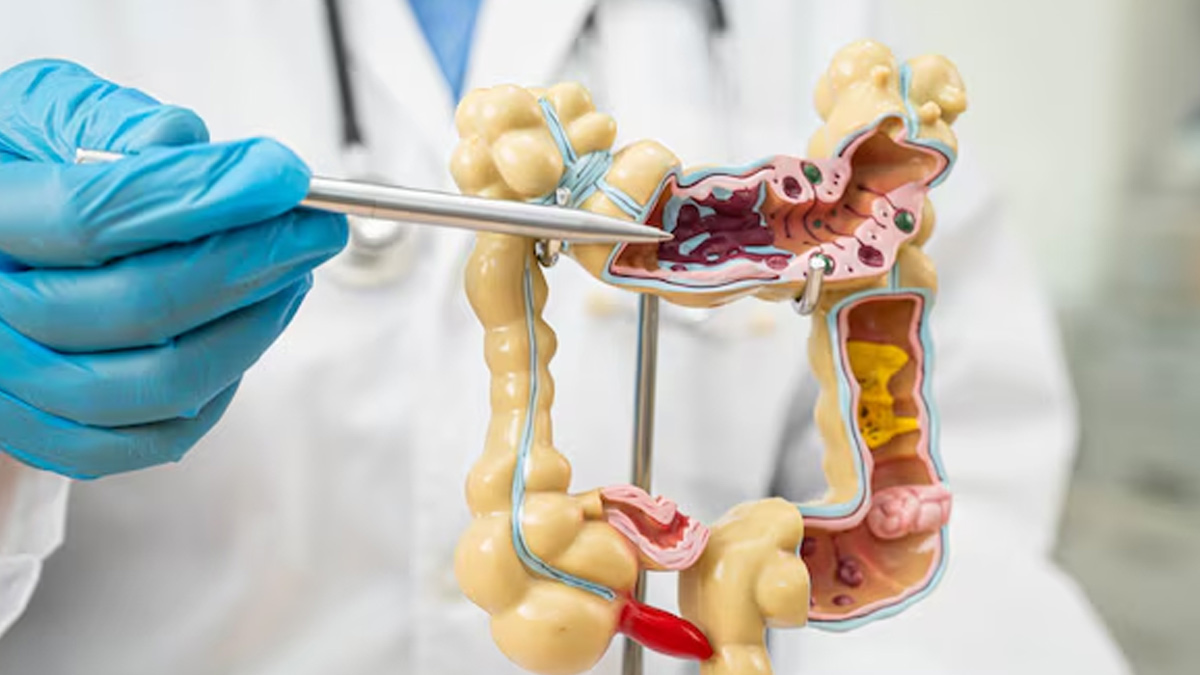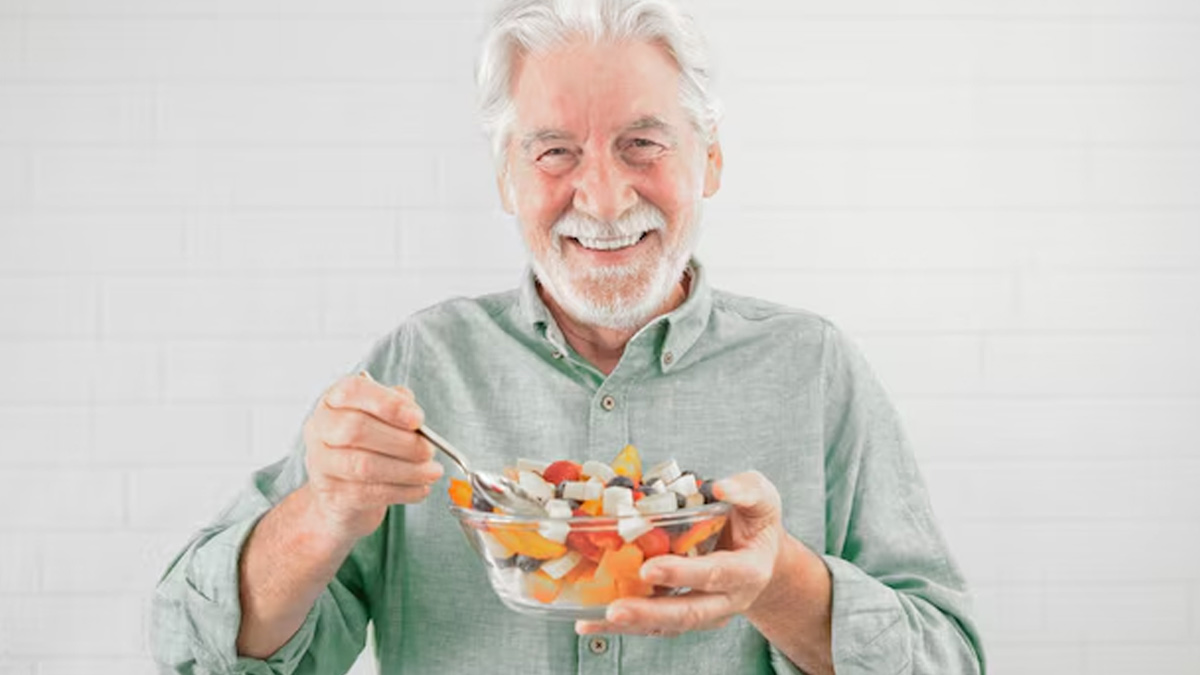
In a hard-to-believe incident, Mike Fremont, a 103-year-old runner from Ohio, USA, has not just survived cancer, but he is thriving at it. Diagnosed with colorectal cancer at the age of 69, Mike was told he had just three months to live. Doctors at the time recommended immediate surgery and conventional cancer treatments, including radiation and chemotherapy. But Mike chose a different path.
Table of Content:-
Inspired by The Cancer Prevention Diet by Michio Kushi, he opted for a macrobiotic diet, which later evolved into a strict vegan and whole-food, plant-based lifestyle. Now well past the century mark, Mike’s story continues to drive conversations around alternative approaches to health and cancer recovery.
Mike Fremont Vegan Diet Routine

Every morning, Mike Fremont begins his day with a warm bowl of oatmeal, a handful of blueberries, and a light drizzle of syrup. Lunch is simple, usually with beans. Then, for dinner, steamed broccoli with a dash of ketchup.
For more than three decades, Mike Fremont has followed a lifestyle rooted in nature, and he believes it’s the reason he’s still going strong at 103. Since the early 1990s, his diet has been strictly plant-based—free from meat, dairy, processed sugar, and packaged foods. Most of his meals are made from ingredients grown on his own organic farm.
He includes brown rice, steamed greens like kale and cabbage, seaweed, and a daily serving of beans, which he swears by for their protein and healing properties. He avoids oils and prefers his food in the purest forms—steamed, boiled, or fermented.
Can A Vegan Diet Alone Cure Cancer?

While there is no direct evidence that following a vegan diet reduces cancer risk, the World Cancer Research Fund (WCRF) suggests that plant-based diets or a vegan diet can play an important role in cancer prevention and strengthening overall immunity.
A 2022 review published in the journal Current Nutrition Reports found that eating more whole grains, fruits, vegetables, and fibre was linked to better outcomes in people with colorectal, breast, and prostate cancers. Researchers added that moderate soy intake also seemed helpful for breast cancer survivors.
However, while the findings are promising, more research is needed to better understand how diet after a cancer diagnosis influences long-term health.
In fact, according to a 2020 review published in the journal Nutrients, researchers found that vegetarian diets didn’t clearly lower cancer death rates, while the Mediterranean diet showed some promise with a slightly reduced risk. This suggests that while plant-based eating may help, more research is needed before clear advice can be given to cancer survivors.
What An Expert Says
Edwina Raj, Head of Services - Clinical Nutrition & Dietetics, Aster CMI Hospital, Bengaluru, says, "While a balanced and nutritious diet is undeniably important for overall health and can play a supportive role in cancer prevention and treatment, it is not considered a standalone cure for cancer."
She adds, "Research indicates that certain dietary patterns, rich in fruits, vegetables, whole grains, and lean proteins and by avoiding processed foods may help reduce the risk of developing various types of cancer and by optimising nutrient intake can enhance the effectiveness of conventional treatments such as chemotherapy and radiation."
However, cancer is a multifaceted disease influenced by a myriad of factors, including genetics, environmental exposures, and lifestyle choices. Therefore, while dietary modifications can contribute to improved health outcomes and may aid in managing symptoms or side effects of cancer treatments, they should be viewed as part of a comprehensive approach that includes medical intervention, rather than standalone therapy or as a substitute.
Risks Involved In Depending On Diet Alone For Cancer Cure

While eating healthy is important, especially during cancer treatment, relying on diet alone to cure cancer can be risky. Some people may choose to skip or delay medical treatments like surgery, chemotherapy, or radiation in the hope that food alone can heal them. But cancer is complex, and without timely medical care, it can grow, spread, and become harder to treat.
There’s also no strong scientific evidence proving that any specific diet can completely cure cancer. A plant-based or anti-inflammatory diet may help support the body and improve overall health, but it shouldn't replace treatments recommended by doctors.
Strict diets without medical guidance can also lead to nutritional gaps, making it harder for the body to fight illness. It is important to remember that while stories of people recovering through diet are inspiring, they don’t reflect everyone’s experience.
Also Read: Dr Shriram Nene Drops 18 Kgs After Health Scare, Slashes Body Fat to 16%—Here’s How He Did It!
Lifestyle Changes To Improve Cancer Survival Rate
Life after cancer diagnosis and treatment can feel uncertain, but small lifestyle changes can make a big difference. Eating more fibre-rich foods like fruits, vegetables, and whole grains; staying active; and avoiding red meat, alcohol, and smoking can all help lower the risk of recurrence. Regular check-ups and managing stress through things like mindfulness or support groups also support both physical and emotional healing. These everyday choices can empower recovery and improve long-term well-being.
(Thumb image source: X)
Also watch this video
How we keep this article up to date:
We work with experts and keep a close eye on the latest in health and wellness. Whenever there is a new research or helpful information, we update our articles with accurate and useful advice.
Current Version
